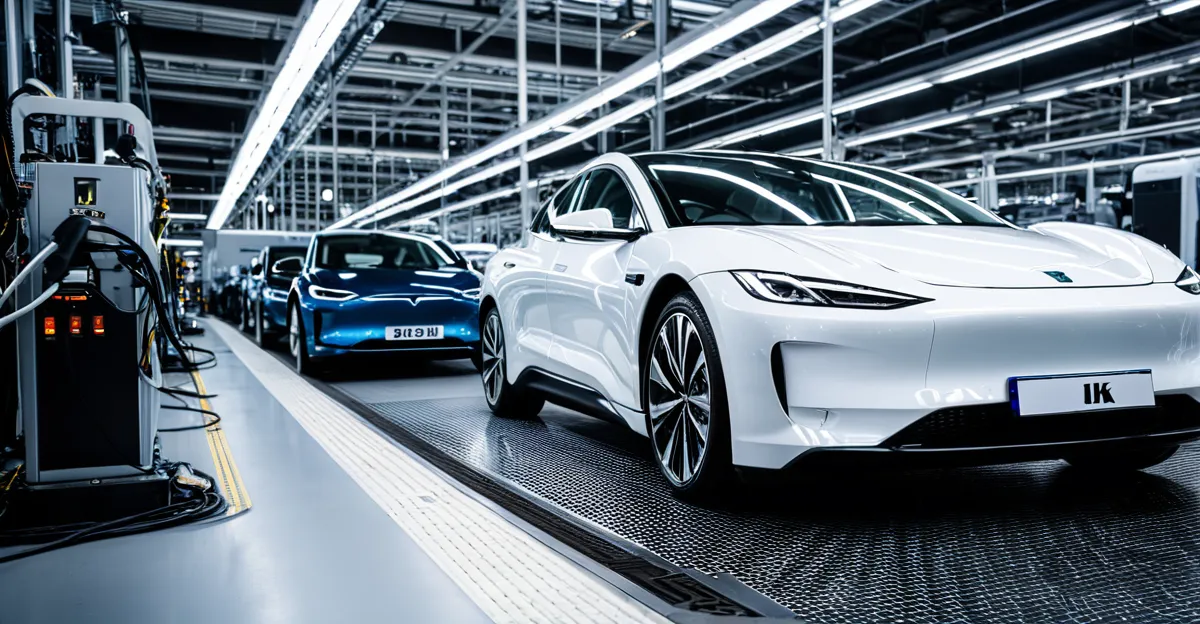Immediate Impacts of the Electric Vehicle Transition on UK Automobile Manufacturing
The transition to electric vehicles (EVs) marks a profound shift in UK car manufacturing, moving away from traditional internal combustion engines (ICE). This change brings acute operational challenges, requiring automakers to restructure production lines swiftly to accommodate electric drivetrains and battery assemblies. The adaptation involves significant capital investment in new machinery and retraining of workers, disrupting established manufacturing workflows.
Economically, the sector faces shocks as demand shifts. While global appetite for electric models rises, some UK factories, long specialized in petrol and diesel vehicles, must pivot to remain competitive. This creates short-term uncertainty but opens pathways for innovation and export growth. Domestic demand for EVs in the UK is accelerating, influenced by government incentives and changing consumer preferences, further pressuring manufacturers to adapt rapidly.
In the same genre : What Are Future Trends in UK Automotive Innovation?
Internationally, UK manufacturers confront changing market dynamics, with EV supply chains and regulations differing across regions. The capacity to respond to these evolving demands will determine the UK’s position within the global automotive landscape. In summary, the transition impacts on vehicle production are multifaceted, blending economic shifts, technological evolution, and altered consumer and trade behaviors, fundamentally reshaping the UK automotive industry today.
Government Policies and Regulatory Framework
The UK government’s transition impacts on electric vehicles (EVs) hinge heavily on its ambitious regulatory framework and policies. By setting clear emission targets, the government aims to phase out petrol and diesel vehicles by 2030, directly influencing UK car manufacturing strategies. This creates a definitive timeline, compelling manufacturers to accelerate electric vehicles adoption and invest in compliant technologies.
Topic to read : What Factors Will Shape the Future of the UK’s Automotive Sector?
To support this transformation, government EV policies include substantial incentives and funding for EV research, development, and production. Grants encourage automakers to upgrade facilities and innovate battery technology, crucial for maintaining global competitiveness. These policies extend to subsidies for consumers, which stimulate domestic EV demand, further shaping the market landscape.
However, UK manufacturers encounter regulatory challenges such as navigating evolving standards for battery safety, waste recycling, and supply chain transparency. Compliance requires significant adaptation and can increase costs, yet also drives efficiency improvements and sustainability. In sum, government EV policies form a critical backbone for the automotive sector’s shift, ensuring the transition impacts are aligned with national emission goals while promoting industrial resilience.
Supply Chain Transformation and Investment Trends
The transition to electric vehicles demands significant shifts in the UK’s automotive supply chain. Manufacturers must source components like batteries, electric motors, and power electronics, which differ substantially from those used in internal combustion engines. This shift challenges suppliers specialized in traditional parts but opens opportunities for firms focused on EV technology.
Investment trends underline this transformation. The UK is witnessing substantial capital flowing into battery manufacturing, including the development of gigafactories dedicated to producing high-capacity EV batteries. Such investments aim to secure local supply, reduce dependency on imports, and support domestic UK car manufacturing growth.
Traditional suppliers face pressure to innovate or risk obsolescence, as EV production requires new materials and assembly processes. Meanwhile, new entrants specializing in cutting-edge battery tech and electric drivetrain components are entering the market, accelerating the pace of change. The evolving supply chain not only reshapes production economics but also positions the UK as a potential leader in the global EV sector, aligned with broader transition impacts reshaping the automotive industry.





